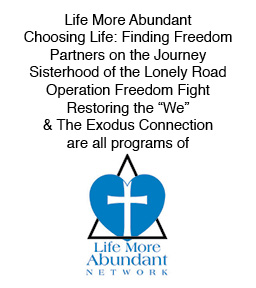Just this morning I downloaded the new upgrade for my internet browser. Upon opening this latest version I was greeted with the message that it now has a handy new “forget” button you can put right in your main toolbar. With a couple of clicks you can erase your cookies, history and other details for the last 5 minutes, 2 hours or 24 hours. They say it makes it easier than ever to erase “an embarrassing web session.”
I can almost hear the collective “yippee” of active sex addicts everywhere. Finally, a profoundly easy way to erase the evidence AFTER the deed has already been done. Just a couple of clicks and “poof” — no one will ever know. But what may seem like a godsend to some, is definitely not from God.
The enemy seeks to destroy us, and addiction—especially sexual addiction— is one of his favorite tools. It, more than any other single thing, can destroy the whole person. It ruins relationships, self-esteem, their relationship with God and often even their physical and financial health. The destruction doesn’t just stop with the addict either. In his recent book The Church: Helping or Hurting?, Michael Dye estimates that each addict’s addiction affects at least 75 other people—including family, friends, employers, co-workers, and sometimes, depending on the natural consequences of a person’s addictive behaviors, even lawyers, doctors, social workers, and other professionals.
The goal is not to get away WITH it, but to get away FROM it. Installing “Forget” buttons, finding ways of circumventing accountability software, or having a second secret computer or smart phone that nobody knows about, doesn’t make you smarter. It doesn’t give you back control over you life, and it certainly doesn’t “win” you anything . . . except more pain, grief and bad feelings.
The truly wise person is the one who knows themselves well enough to suitably fill every chink in their battle armor. They are the ones who do everything they can to make it difficult for themselves to relapse.
When you’re feeling strong in your recovery, think about the times and ways that you’re most likely to slip into old behaviors, and develop strategies to avoid them. A close friend or accountability partner can be an amazing help in creating a proactive plan. If you can find a healthier, fully-engaging challenge, hobby or other go-to activity that can captivate your mind and replace the thoughts that taunt and urge you to act out, you will find that even the most conditioned cravings usually subside in less than an hour.
The more frequently you are able to successfully redirect your focus toward something positive and fascinating to you, the more you will be retraining your brain that you don’t have to act on the thoughts and cravings that sneak up on you when you’re not feeling quite so strong. In the long run, it’s a much better, more satisfying path than letting things like a “forget” button push you toward destruction and the ultimate death of all that is good in your life.
“There hath no temptation taken you but such as is common to man; but God is faithful, who will not suffer you to be tempted above that ye are able; but with the temptation also make a way to escape that ye may be able to bear it.” — 1 Corinthians 10:13


Leave A Response